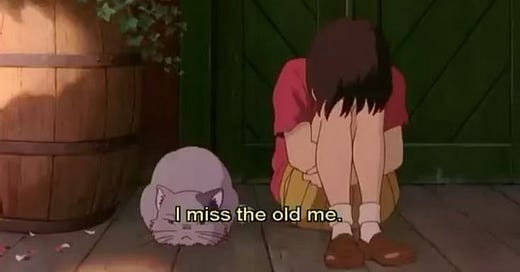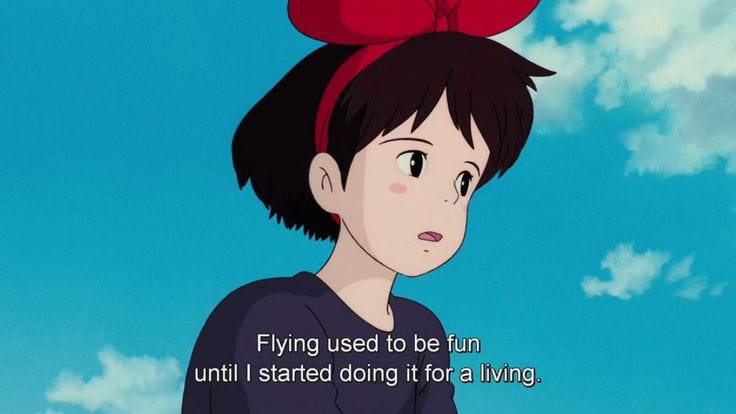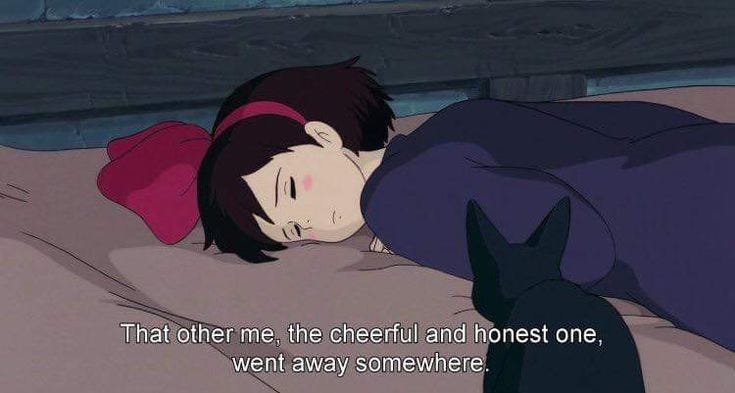In English, we say: "I miss myself."
But in poetry, we say: "I left pieces of me in places I can't return to."
In English, we say, “I miss myself.” It’s a phrase I’ve caught myself thinking, sometimes in the quiet moments after a long shift at the hospital, when the city outside my window is winding down and my mind is still humming with the day’s demands. The words are simple, almost clinical, but they never seem to capture the full ache of what I mean. What I really want to say is something more like poetry: I left pieces of me in places I can’t return to.
At 26, I’m a doctor in London, a city that feels both infinite and intimate, depending on the day. I graduated from one of the top universities in the world, an achievement that still feels surreal when I let myself pause long enough to remember. I’ve always been the hard worker, the one who stayed late at the library, who colour-coded notes and revised until my eyes blurred. I moved through my early twenties with a kind of tunnel vision, chasing the next exam, the next rotation, the next goal. I told myself that joy could wait: that there would be time for living after the next milestone.
But now, standing on the other side of so many finish lines, I find myself missing someone I used to be, or maybe someone I never allowed myself to become. There are versions of myself scattered across the map of my life, tucked into late-night study sessions with friends who have since drifted away, in the laughter echoing through university halls, in the rare, sunlit afternoons when I let myself read for pleasure instead of for knowledge.
Sometimes I catch a glimpse of that other me in the pages of a novel on the tube, or in the way my hand moves across a notebook when I let myself write without purpose, just for the joy of it. I remember the girl who used to get lost in stories, who believed that words could open doors to other worlds, who wrote poems and sketched ideas for new worlds in the margins of her textbooks. I remember the version of myself who could spend hours wandering through a bookshop, who felt at home in the hush of libraries, who dreamed not just of achievement but of adventure.
It’s strange, the way we outgrow ourselves, or maybe just misplace the parts that felt lighter, freer. Medical school and the early years of my career demanded so much focus, so much discipline, that I learned to put away the softer, more spontaneous parts of myself. I became someone who measured days in tasks completed, not moments enjoyed. I became efficient, reliable, and, if I’m honest,a little bit brittle.
But lately, I’ve been trying to find my way back. I’m learning, slowly, that relaxation is not a reward for hard work but a necessary part of being alive. I’m teaching myself to savour small joys: a quiet morning with a novel, a walk along the Thames, a cup of coffee sipped slowly instead of gulped down between patients. I’m discovering that it’s okay to put down the to-do list and pick up a pen, to write for the sake of writing, to read for the pleasure of getting lost.
There’s a kind of grief in realising how much of myself I’ve left behind in pursuit of success, but also a quiet gratitude. I am made of all the places I’ve been, all the people I’ve loved, all the moments I’ve lived through, even the ones I rushed past. Even if I can’t go back, those pieces are still with me, woven into the person I am now: the doctor, the reader, the writer, the Londoner learning how to be gentle with herself.
So yes, in English, I say, “I miss myself.” But in poetry, I remember: I left pieces of me in places I can’t return to, and now, with every page I read and every word I write, I am learning how to gather them up again; how to become whole, not by going back, but by moving forward with softness and intention. Maybe that’s what living truly is: not just working hard, but allowing yourself to be found, again and again, in the small, sacred moments you choose to claim for yourself.
Books to read if you left pieces of yourself in places you can’t return to:
Here’s a curated list of book recommendations (modern, classic, and philosophical) exploring the themes of finding yourself, self-transformation, and realising how much you’ve changed.
Modern Books
Wintering by Katherine May: a beautifully written memoir about navigating periods of difficulty and change, and learning to embrace the seasons of life when you feel lost or in transition.
Atomic Habits by James Clear: ione of the few non-fiction books that truly deserves the hype. A practical and insightful guide to understanding how small changes in habits can lead to profound shifts in identity and self-perception over time.
Lost Connections by Johann Hari: explores the roots of depression and disconnection, and offers a hopeful perspective on how reconnecting with ourselves and others can help us rediscover meaning and purpose.
You Are a Badass by Jen Sincero: a bold, funny take on breaking free from self-doubt and embracing the journey of self-discovery and transformation.
Classics
Siddhartha by Hermann Hesse: a timeless novel that follows a young man’s spiritual journey, exploring the nature of self, change, and the search for meaning.
The Bell Jar by Sylvia Plath: a semi-autobiographical classic about identity, mental health, and the struggle to find oneself in the face of societal expectations.
Jane Eyre by Charlotte Brontë: a story of personal growth, resilience, and self-realisation, as Jane navigates love, independence, and her own evolving sense of self.
Philosophical Books
The Untethered Soul by Michael A. Singer: a guide to inner transformation, focusing on observing your thoughts and emotions to achieve greater self-awareness and freedom.
You Are Here by Thich Nhat Hanh: a short, profound book on mindfulness and presence, helping readers reconnect with themselves and the present moment.
Plato’s Republic (especially the Allegory of the Cave): a foundational philosophical text exploring the nature of reality, self-knowledge, and the journey out of ignorance into self-understanding.
Kaizen: The Japanese Method for Transforming Habits, One Small Step at a Time by Sarah Harvey: introduces the philosophy of gradual, continuous improvement and how small steps can lead to significant personal transformation.
These books collectively reflect the many ways we lose, find, and reinvent ourselves, sometimes in places we can’t return to, and sometimes in ways we never expected.



Until next time,
Allie







Such a sweet read🤍 If it's any encouragement, you've helped provide a moment of pleasure for me😊
I hope you’re able to schedule in some time to be spontaneous. Maybe at least one hour a week for starts, where you’re intentionally present without pressure. You’re allowed to have personality, even on the job. It doesn’t take away from your intelligence 🫶